Are you a property manager living in Colorado looking to start your own company?
While this is an exciting endeavor, it pays to be familiar with all of the steps necessary in order to start a successful property management company. Luckily, we can help!
In this blog post we will be going over everything you need to get started on your journey to get your own Colorado property management company off the ground. With these tips, your company will be up and running in no time!
What Does a Property Manager in Colorado Do?
Being a property manager is a rewarding career that also has a long list of important tasks and responsibilities that you will have to take care of on a regular basis.
A property manager, in essence, is in charge of taking care of various types of real estate on behalf of a property’s owner.
As a property manager, your goal should be to make sure that the property is being well maintained, the property owner is making a profit on their investment, and the tenants of the property are happy.
This is a lot to keep track of, but it is absolutely crucial to the success of your company.
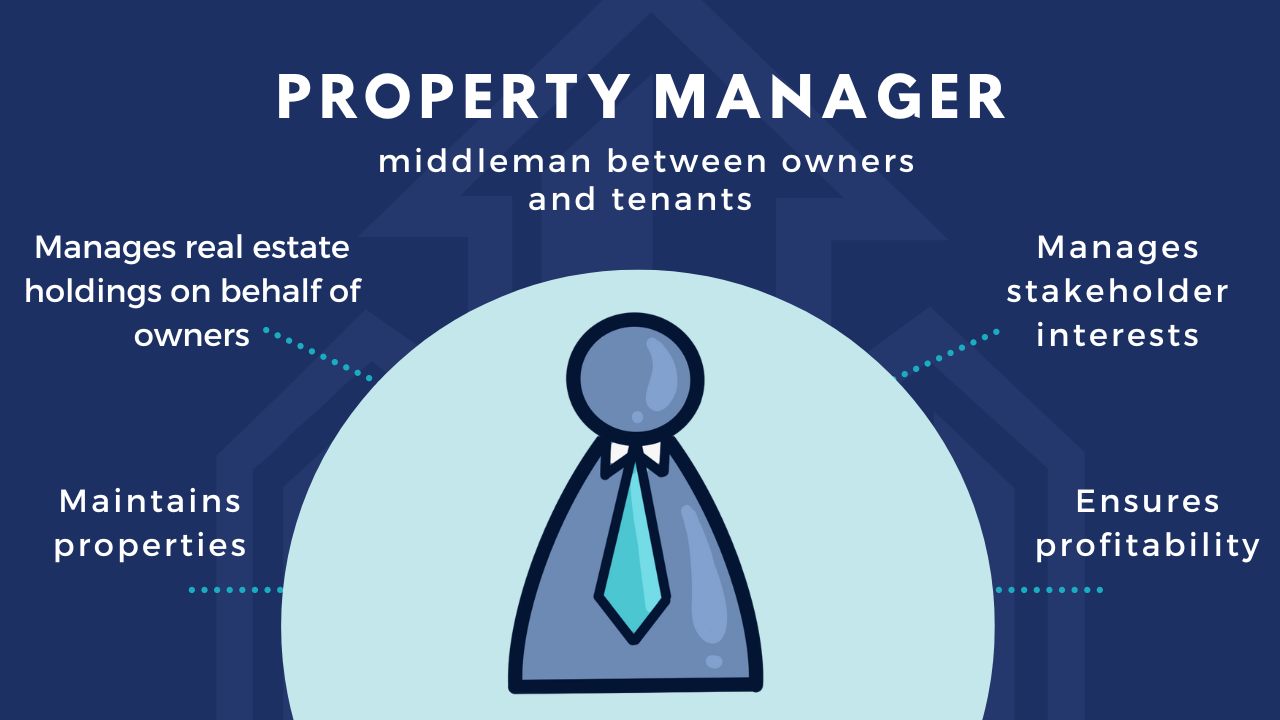
In Colorado, a property manager can take care of single family homes, multi family homes, and other kinds of properties.
Now you may be wondering, what can I expect my daily life to look like as a property manager? The answer is, your days will largely have a lot of variety in your responsibilities.
Being a property manager involves putting out fires and being able to handle situations as they come. However, there are some day to day operations that you can expect from the job, such as advertising vacant properties, meeting with tenants and owners, and finding the best ways to maintain a property and keep it in the best condition possible.
The truth is, as you connect with tenants, owners, and contractors, you will often be required to mediate their often competing interests.
Since your goal is to make sure that the rental property remains well maintained, profitable, legally compliant, and comfortable for tenants, it is your job to make sure that everyone is on the same page, working together to reach this goal.
Another factor that property managers in Colorado must take into consideration is the local regulations for Colorado rental properties.
We will touch on this in more detail later in this blog post, but for now, it is important to note that property managers in Colorado must always do their due diligence to ensure that their rental property is following all of the laws and regulations that have been put in place.
Property management can be both a personally and financially rewarding career, and as long as you are prepared for its challenges, we are confident that you will thrive if you follow our guide.
Keep reading to find out more about how you can start your own property management company in Colorado.
Step 1: Create Your Property Management Business Structure
The first step of creating your own property management company in Colorado is deciding what your business structure will be and choosing a name for your company. You will need a name in order to legally register your business!
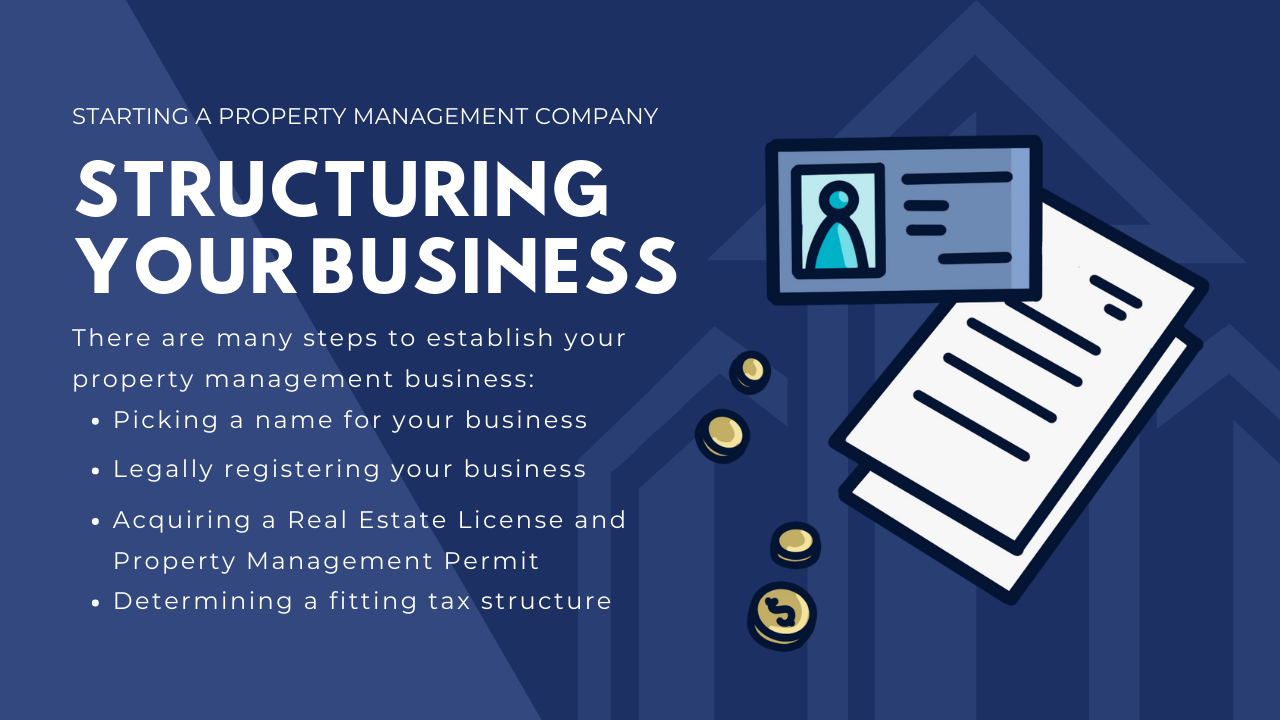
Once you have the name for your business chosen, you will need to register it as a legal entity. This can be a complicated process in Colorado, so we highly recommend working with a corporate accountant in your area to help you navigate everything properly.
Registering your business and having a solid plan will help you make your future decisions regarding your company’s structure and how you will protect yourself in the long run from personal and professional liability.
Step 2: Know Your Colorado Rental Property Laws and Create a Strong Legal Contract for Clients
After you have registered your property management company as a legal entity and you are in the beginning stages of setting up your business structure, you will need to create a solid, legally binding contract for your future clients in Colorado.
We highly recommend starting this process as early as you can in your journey, as it can end up costing a lot of time and money in the long run.
Working with an attorney that specializes in property management and real estate to create a strong legal contract for your clients will help to make sure that your company remains protected against liability, fraud, and a variety of other risks that simply come with the job.
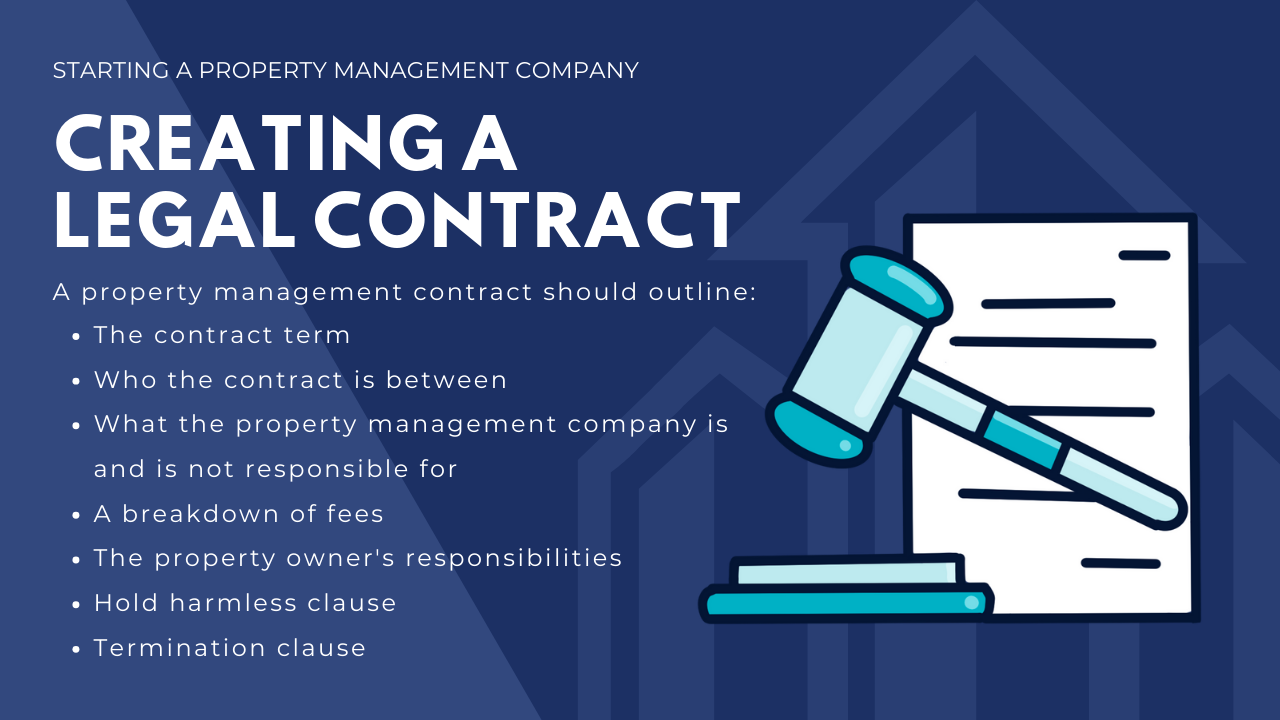
Your contract should provide clear details on the following:
- The length of the contract term
- All parties involved (your company and the property owner).
- All of the responsibilities of the property management company, including:
- Property maintenance
- Filling vacancies
- Tenant management, such as rent collection or evictions
- Repairs and emergency maintenance
- Monthly costs and ongoing responsibilities
- Exclusions from the property management company’s responsibilities.
- Breakdown of fees owed by the property owner to the management company.
- Responsibilities of the property owner.
- Hold harmless clauses: A legal statement absolving parties of liabilities for injuries or damages.
- Termination clause: Outlining conditions for contract termination with or without penalties.
Step 3: Create a Scalable Business Plan for Your Property Management Company
As you continue to further establish your new Colorado property management company, you will need to define your short term and long term goals. You can do this by creating a business plan.
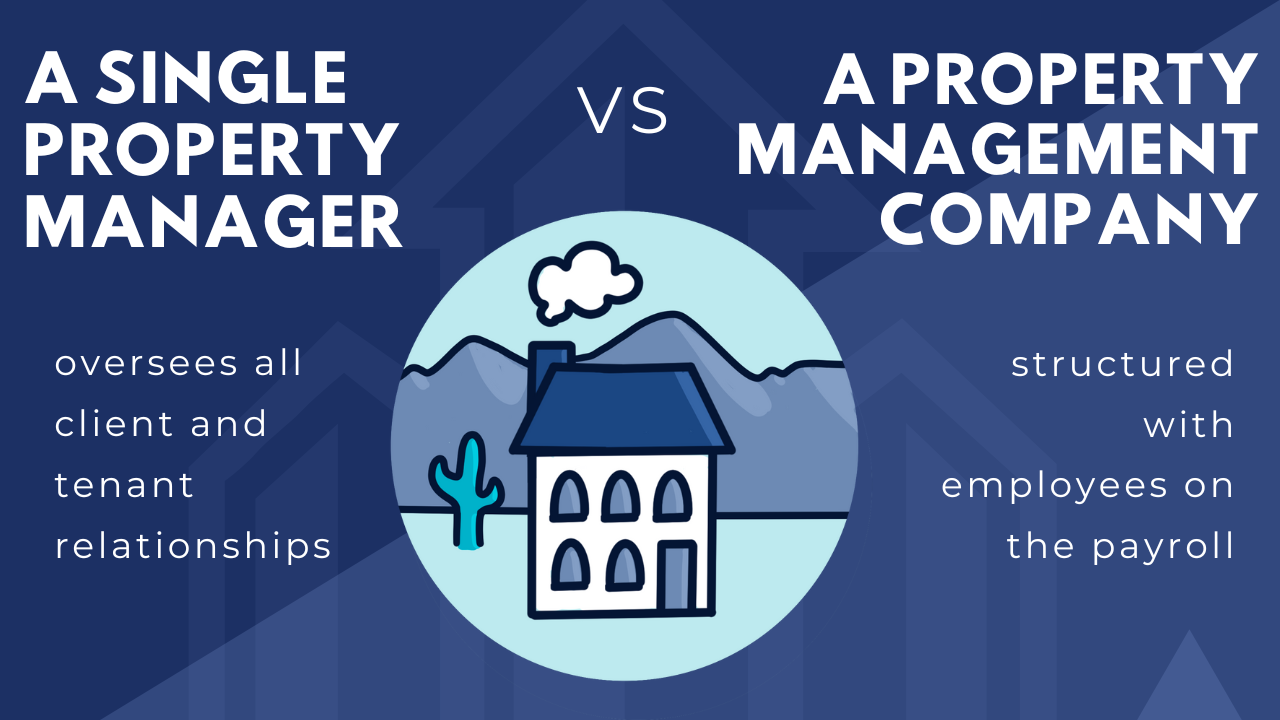
First, you will need to decide how you would like to structure your property management company. Generally, there are 2 ways in which property management companies are typically structured.
One property manager that single handedly oversees all of the client and tenant needs:
This business model means that one property manager would be contracting work out to other professionals and contractors when needed.
For example, if a property needed a repair, the property manager would then outsource the work for that repair rather than doing it themselves.
A property management company with salaried employees:
This model has a more evenly distributed workload for everyone involved with the rental property, and allows each team member to focus on their own specialty within the company.
In this case, if a property needed a repair, your company may have an in-house maintenance worker that you can use to make the repair, rather than outsourcing the work.
While these may be the two most popular structures for a property management company, it is important to note that you do not have to choose one and stick with it forever.
In fact, most property managers choose to begin their careers as a sole proprietor, using the work of contractors and other businesses to help them carry their workload. Then, as their business grows over time, they gain more clients.
Once you have more clients involved, you will have a larger amount of income being generated, meaning you can begin to hire employees to help even out your workload.
At this point, you can shift your company structure and establish a business hierarchy with more team members.
When you are in the process of expanding your Colorado property management company, you should consider filling a range of part time, full time, and contracted roles for your business.
While you may be used to taking on the full property management workload on your own, once you are able to delegate some of your responsibilities to other trusted team members, you will find that you will be able to provide clients and tenants with an even higher level of service.
The following are some of the roles that you may want to consider delegating as your property management company grows:
- Additional property managers who oversee multiple properties, ensuring top-notch service for each client.
- Administrative support to manage office space and daily operations seamlessly.
- Sales representatives dedicated to nurturing client relationships and attracting new ones.
- Human resources professionals handling payroll and benefits for employees.
- Finance experts managing accounts payable and receivable.
- Leasing agents, showing coordinators, and tenant managers facilitating tenant relations and acquisitions.
- Maintenance managers and staff handling routine and emergency repairs.
- Service coordinators who can ensure that your company maintains smooth day to day operations.
- Marketing specialists creating business websites, managing social media, and developing marketing materials.
In addition to these roles, there are some other contract based roles that you may want to fill. These include:
- An adept accountant well-versed in the intricacies of property management businesses.
- Retained services of a real estate attorney or law firm.
- Contractors specializing in more specialized maintenance tasks such as locksmiths, HVAC specialists, etc.
- Information technology (IT) personnel to streamline and manage business systems and processes.
Step 4: Find a Software That Can Help You Automate Your Operations
As a property management company in Colorado, you will encounter numerous competing priorities each and every day. This is unavoidable, as it is simply the nature of the job.
Given the relationship-driven core of your profession, it is absolutely crucial to address these priorities promptly and professionally. After all, your reputation as a property manager stands as your most valuable asset, and failing to get to important matters in a timely manner can greatly damage that reputation.
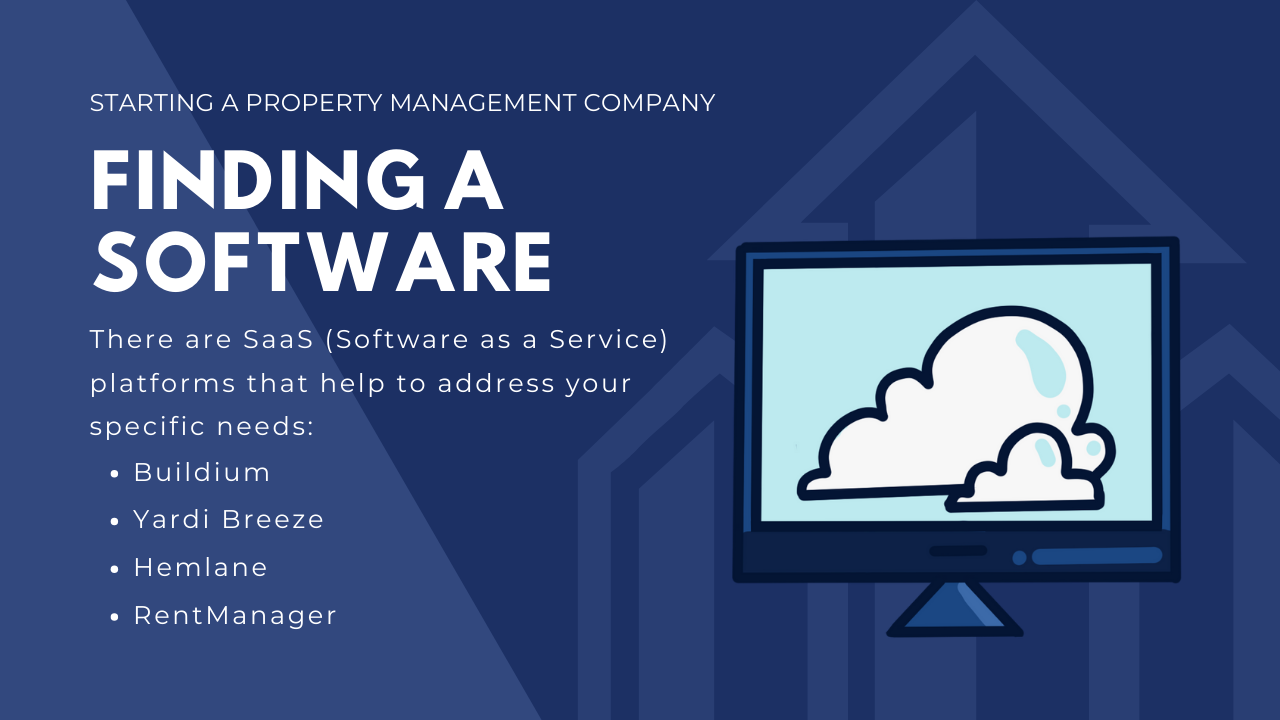
In meeting any business needs, software solutions can be a game changer, and property management companies are no exception.
Selecting the right software for your unique needs can be daunting, so we recommend opting for one that offers scalability to accommodate both your current and future business requirements.
For property managers, several Software as a Service (SaaS) platforms are designed to cater to specific needs.
Notable examples of comprehensive property management software include Buildium, Yardi Breeze, Hemlane, and RentManager. However, particularly when starting out, these complex business management tools might not be the most practical choice for your company.
Fortunately, with some research, you’ll find SaaS solutions tailored to various business needs, such as tenant rent collection, maintenance order tracking, email management, and document sharing.
While these individual platforms may not offer the same level of intuitiveness or efficiency as an all-in-one property management software would, they often prove to be more cost-effective and adaptable, especially during the initial months or years of operation.
Step 5: Attract Leads and Sign on Clients Through Effective Marketing Methods
One of the largest mistakes that businesses across all industries can make is assuming that after you have begun to attract and retain clients, your marketing efforts are less important. This couldn’t be farther from the truth!

The truth is, marketing your property management company in Colorado is a task that must be continuously maintained.
At your company, your marketing efforts should have their own dedicated resources and staff time.
We recommend starting your marketing efforts right at the beginning of your business so that you can truly make sure that your property management company has the best chance for long term and short term success.
Establishing credibility as a business often means that you have to build a strong presence both online and in real life.
This is done by investing in your marketing efforts and making your brand awareness a priority. Key aspects of your marketing strategy should include:
An Engaging and Informative Website
In our current market, a high-quality website is a non negotiable if you want your property management company to have online credibility.
Think of it as the digital face of your business! It’s crucial to make a strong first impression with a professional, informative, and well-performing site.
While platforms like WordPress, Squarespace, and Wix offer templates for DIY websites, investing in professional web design can elevate your online brand and transform your website into a true asset that can help you generate revenue for your company.
Strong Marketing Collateral
Marketing collateral encompasses various materials that you can use to promote your business. This may include social media content, advertisements, business cards, brochures, digital guides, blog posts, and more.
While your website takes precedence, these materials play an important role in establishing professionalism and strengthening your brand identity.
Networking Opportunities
Building relationships and industry contacts is key to expanding your reach and attracting clients.
Each real estate market in Colorado has its own unique dynamics, and connections often lead to business opportunities.
Actively engage with real estate professionals and fellow property investors to identify potential clients and forge industry partnerships.
Consider joining professional organizations like the National Association of Residential Property Managers for invaluable insights, training, resources, and networking avenues.
Step 6: Decide How You Will Set Up Your Property Management Fees
Once your business has its structure and marketing strategy sorted out, you need to decide how you will structure your fees.
This step is crucial to get right, as charging too much will scare away potential clients, and charging too little will make you struggle to make ends meet or make a profit.
This is why it is absolutely crucial to understand your local market, as analyzing the pricing of your competitors is the best way to learn about what you should be charging for your own services.
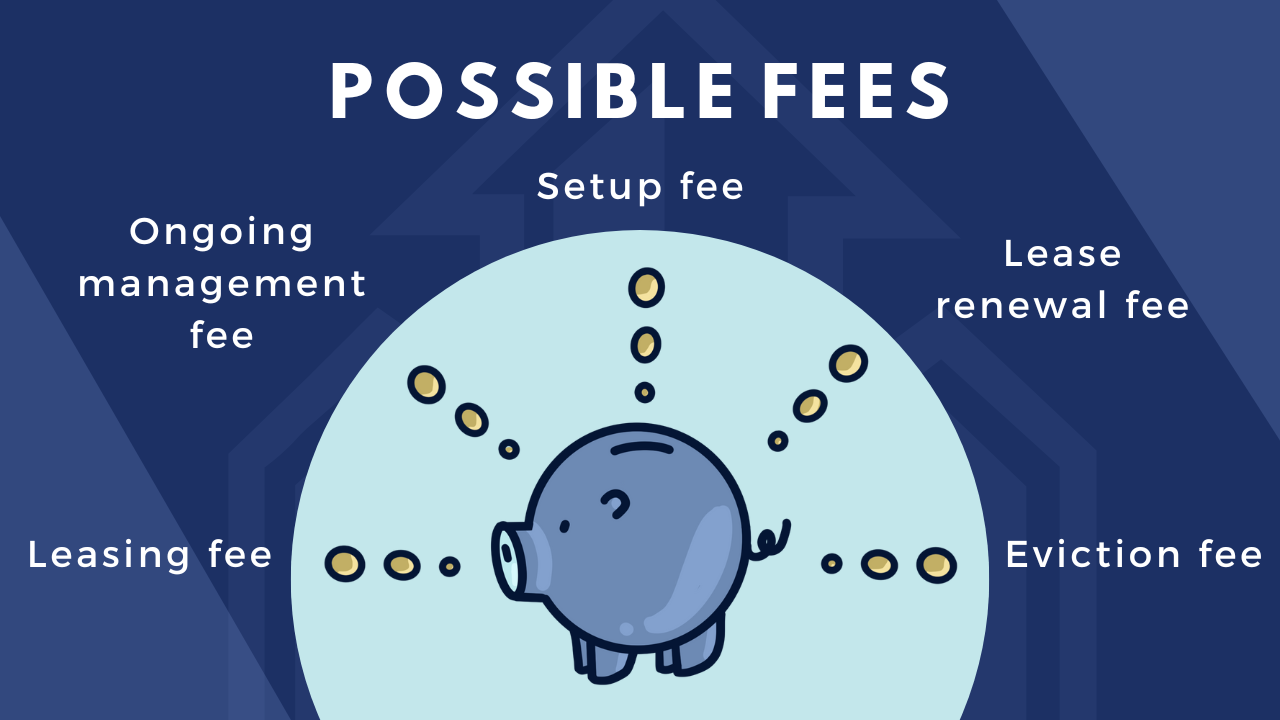
You can even take this market research a step further and consider adding additional fees that are more common in property management.
Here are some examples of fees to include in your company’s pricing structure:
Setup Fee: This one-time fee, typically ranging from $200 to $300, is charged to property owners in Colorado to initiate an account with your business.
Ongoing Management Fee: The primary source of monthly income, this fee typically falls within 3-10% of the property’s monthly rental income. It covers essential operational costs, such as tenant relations, rent collection, inspections, maintenance oversight, and emergency repairs.
Leasing Fee: Charged when a unit becomes vacant, this one-time fee is usually equivalent to one month’s rent or a portion thereof (often exceeding 50%). It covers expenses related to tenant acquisition, including staging, listing, tenant screening, lease preparation, and associated documentation.
Lease Renewal Fee: Although less common, this fee is applicable in highly competitive rental markets. It’s a one-time fee paid by tenants when renewing their lease, typically amounting to a few hundred dollars at most.
Eviction Fee: While considered optional, it’s advisable, especially if you’re representing the property owner during an eviction process.
Step 7: Offer Top Notch Property Management Services to Your Colorado Clients and Tenants
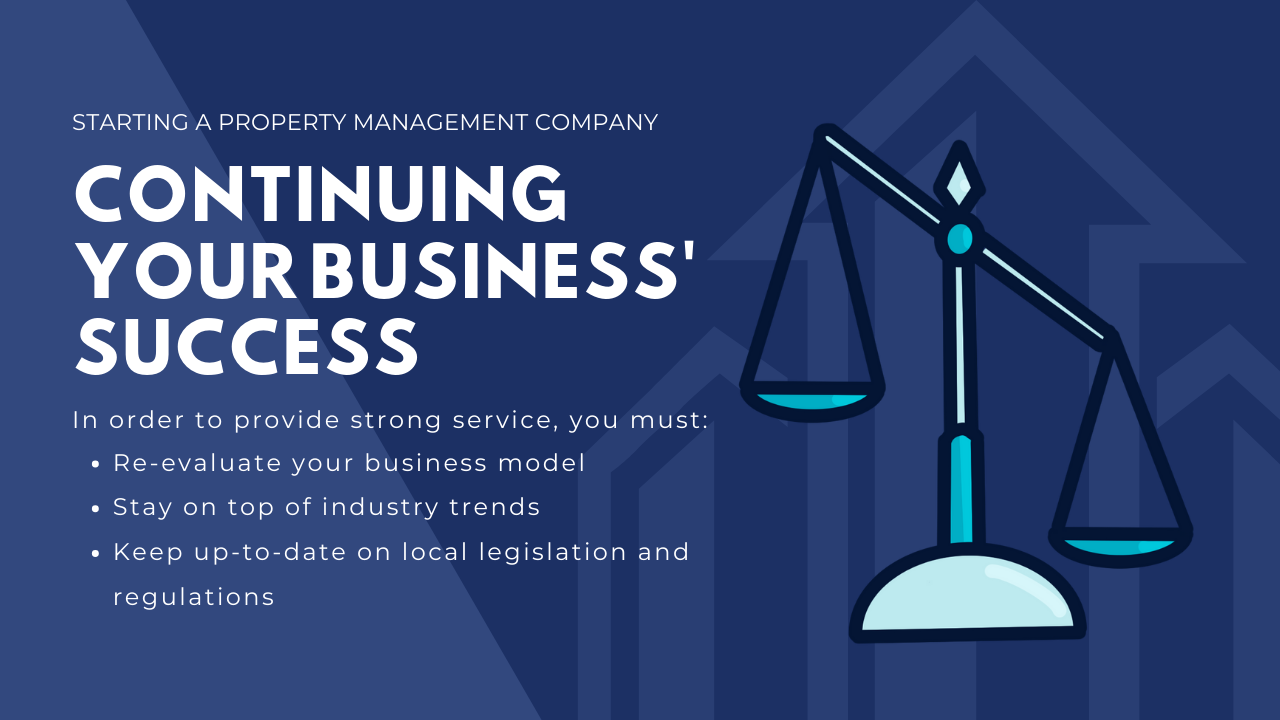
When it comes to property management, offering high quality services are crucial to your long-term success.
As your Colorado property management company grows and gains new clients, it is important to continue re-evaluating the quality of your work so that you can maintain a positive relationship with your clients and a good reputation in the industry.
With these tips, we are confident that your new Colorado property management company will be up and running in no time! If you have any further questions, contact our team at Upkeep Media!



